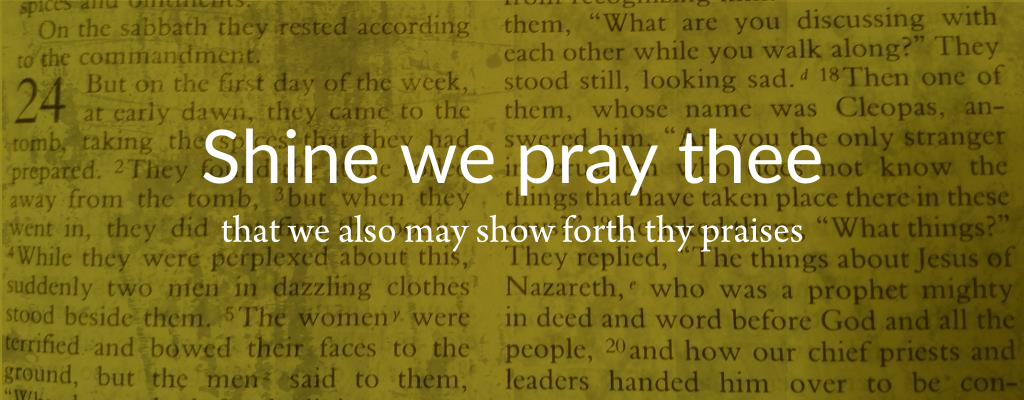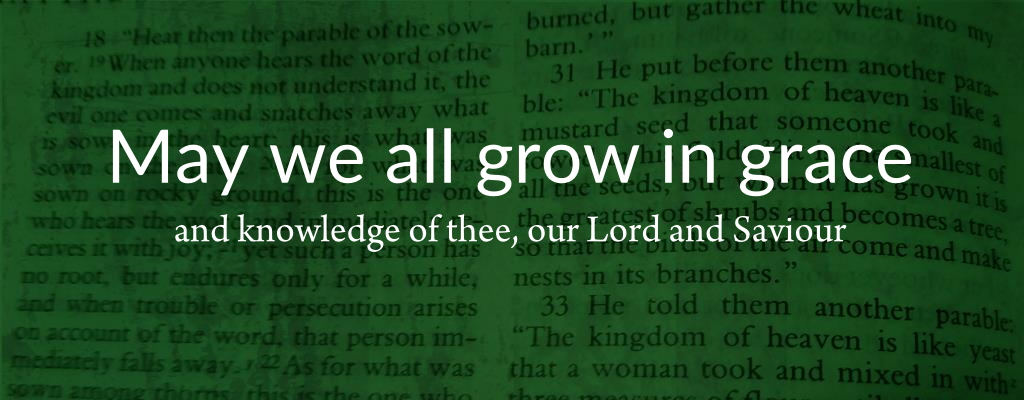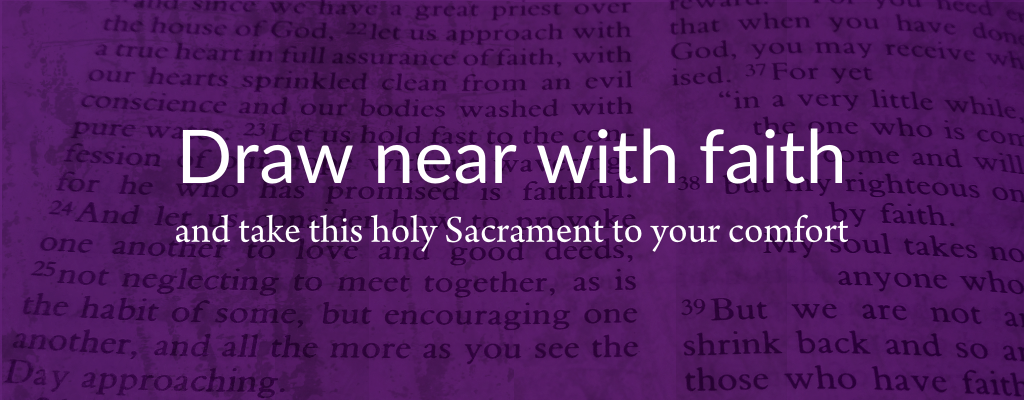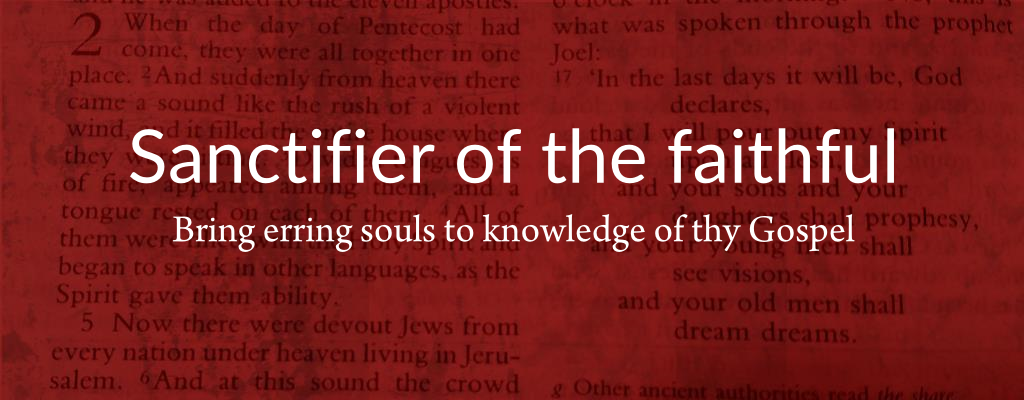News and Articles from the Prayer Book Society
-
“Almighty and everlasting God, who hast given unto us thy servants grace, by the confession of a true faith, to acknowledge the glory of the eternal Trinity, and in the power of the Divine Majesty to worship the Unity: We beseech thee, that this holy faith may evermore be our defence against all adversities; who livest and reignest, one God, world without end. Amen.”
There is no evidence to suggest that Pope Gregory the Great (540 – 604 A.D.) used the hymns and poems of Saint Ephrem the Syrian (306 – 373 A.D.) when composing the preface and prayers for Trinity Sunday; except for the curious formulation in the collect: “that this holy faith may evermore be our defence against all adversities.” St. Ephrem is remembered not only as a theologian but for his hymns, prayers and liturgical poems especially in praise of the Holy Trinity. One doesn’t usually imagine the confession of the triune faith as an defence in times of adversity. But St. Ephrem knew adversity or more accurately conflict during the era of the Arian Heresy. The conflict of the two opposing views of the person of Christ and the nature of the God-head continued to rage in the Church for years following the “homoious” (of one substance with the Father) statement of Council of Nicea (325 A.D.). Athanasius, of Alexandria (296 – 373 A.D.) was deposed as bishop on less than 6 times by Arian opponents. (You will find the Trinitarian Creed of Athanasius on p. 625 of the BCP).
In the Orthodox tradition, Pentecost is the celebration of the Holy Trinity as the coming of the Holy Spirit on that day immediately confirms the identity of the triune God. The separate recognition given to the Holy Spirit is reserved for the Monday following.
The Western Church preserves the Octave as an opportunity to respond in faith to God’s loving action. So it is that on the same day, one week following Pentecost, the church responds by recognizing and celebrating that God has revealed of himself as Three Persons in One God.
The Collect for Trinity Sunday is one of the oldest prayers we have in the Church. It is pretty much unchanged from the time of time of Pope Gregory. St. Gregory was known as the “Father of Christian Worship” because of the far reaching impact of his revisions to the liturgical worship of his day. His gifts are equally recognized in the Orthodox Church where he is also revered as a saint. His contributions to the development of the “Divine Liturgy of the Pre-sanctified Gifts,” are still in use in the Byzantine Rite,
The Trinitarian nature of God has always been an act of faith for believes and source of confusion to non-believers. However, is does provide a creative tension in the Christian mind as we try to comprehend the nature, character and personality of a Triune God. This creative tension enables us to stretch our faith and imagination as we strive to comprehend the incomprehensible. The tension continues to provide new insights into our faith and our own characters as faithful or truth believers.
Maybe we are meant to understand the words in “our defence against all adversities” to mean our defence against “false belief and heresy.” Regardless the confession of the Holy Trinity drives us back to the Bible to better understand the relationship of the Father to the Son, and to the Holy Spirit and what that means for us and our salvation.





Leave a Comment